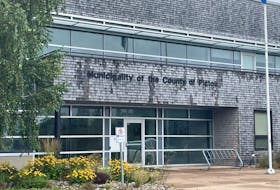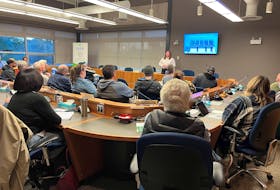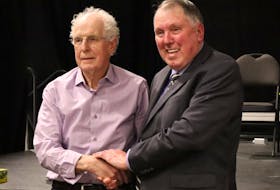
From left are: Jocelyn Dorrington of the Delmore "Buddy" Daye Learning Institute, parent Ashley MacDonald, Mary Desmond of the Council for African-Canadian Education, and Crystal States of Black Educators Association of Nova Scotia.
“If you can’t connect with the teacher, if (the curriculum) doesn't mean anything to you, how can you stay engaged?” asked Jocelyn Dorrington, chairperson of the Delmore “Buddy” Daye Learning Institute (DBDLI).
Dorrington actively promotes the idea of having more black educators in the teaching profession because she, and others involved in education, believe that it gives black students a person they can more easily identify with at the head of the class. Expanding the curriculum to include more black history and culture – for all students – is also a goal.
“They have to see role models,” said Mary Desmond of the Council for African-Canadian Education (CACE). “And we have to tell our stories.”
Ashley MacDonald, who with her fiancé Darrell Bowden, has two children: a four-year-old son and a son who turns two later this month, was among those in attendance.
MacDonald and her family live in Stellarton. Her four-year-old son attends the Africentric Four Plus Program, which started in 1999; it is basically a school readiness program with African culture, history and resources integrated in many aspects of the program, and helps students get ready to enter the public school system.
“I went to Northumberland (Regional High School) and they didn’t have anything. Other than during African History Month, there wasn’t much there,” MacDonald said.
“It was the community who did that,” Dorrington said about the start of the program. “We had not money (but) we had the will.”
They subsequently sought funding from the African Canadian Services Division of the Department of Education and Early Childhood Development.
Saturday’s community consultation was held at the Ward 1 Rec Centre and was hosted by CACE, African Canadian Services Division; Black Educators Association of Nova Scotia; Council on African Canadian Education (CACE) and the DBDLI.
All of those organizations are under the umbrella of the provincial Department of Education.
The session dealt with educational issues affecting African Nova Scotian students and the communities they live in.








